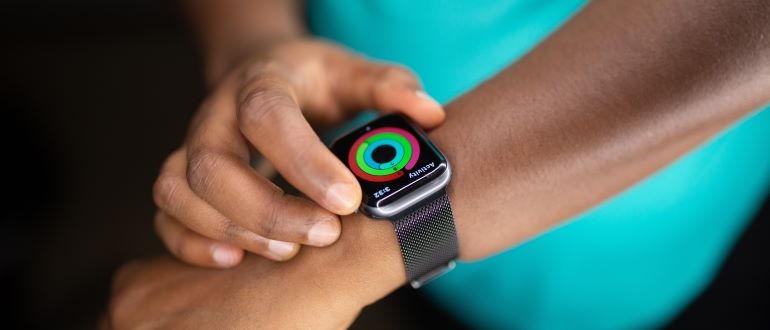
Performance wearable maker Whoop debuted a generative AI feature called Whoop Coach, leveraging OpenAI’s GPT-4 technology to offer users personalized health and fitness feedback.
The Coach app combines Whoop’s data and algorithms with a custom machine learning model to help answer user questions about their personal physiology—the service is available in more than 50 languages.
The feature offers bespoke training plans and recommendations, including custom routines and recipes, in-depth information on key performance topics, comparisons to similar individuals for performance gaging, and insights into unknown factors that may be affecting performance.
For example, a user can ask Coach how to improve heart rate variability (HRV), how to manage sleep as a new parent, or how one can optimize a morning routine or weekly workout schedule.
Gregg Malkary, managing director of Spyglass Consulting Group, explains Gen AI can leverage personal health data from wearable devices to offer advice specific to the consumer, enabling users to maximize the benefits from his workouts.
“Gen AI can track past health info and warn you about potential health problems,” he says.
Malkary says this is valuable for both health and fitness consumers and for patients in chronic care management programs.
“For a chronically ill patient, it can help the patient cope,” he explains.
He points to Gen AI’s ability to provide the health fitness consumers with advice on what to eat and how to live for better health and wellness, which he says can help support the consumer to obtain their fitness goals.
“Generative AI must better tailor its recommendations to help consumers or patients obtain their health profiles and goals,” he says. “The technology should seamlessly work with various wearable devices, ensuring compatibility and choice for end users.”
Malkary adds it will be critical for companies deploying Gen AI in wearables to make the features easily accessible and straightforward to use, responding to the demand for intuitive interfaces that cater to all users.
Paola Telfer, CEO and founder of Sens.ai, says currently, when people think about generative AI, they think about generating music and documents.
“When we are talking about generative AI in wearables and wellness it is about personalization,” she says. “As a physical exercise analogy, if you are training for a marathon, you would have a training schedule that builds up your endurance; there is a standard protocol that has been developed.”
She explains with a fitness wearable, generative AI could personalize that to your capacity, your specific goals, and your biosignals in the moment.
“For instance, maybe, at the moment, on day 10, the regime needs to be tweaked from a 2 to 2.3 km run,” she says. “The same principle applies to brain training.”
Generative AI helps answer questions like, “How difficult should your brain workout be at that moment?”
Telfer says brainwave information can indicate, for example, if you are tired, or stuck in analytical thought – states which brain training can be adapted to.
She adds the technology is evolving at a steady pace–it is the privacy and ethics that need to evolve and keep pace.
“This responsibility to make ethical decisions should be taken very seriously by the individuals and organizations developing AI-powered offerings,” she says. “Generative AI, especially when using biometric data, needs to be handled with respect.”
Malkary says he agrees Gen AI must implement strong security measures and transparent data practices to earn and maintain trust and organizations must ensure that its wearables are accessible to a wide range of consumers.
“These companies should focus on helping end users adopt and sustain healthier habits over time while integrating motivational strategies and habit-forming guidance,” he says.
From Telfer’s perspective, consumer demand will be driven by the efficacy of personalization in the product.
“People are already used to getting standard nutrition or workout plans, or lightly personalized plans with a personal coach,” she says. “Consumers’ interest in easily accessible, accurate, and instant personalization is why personalized health is getting considerable research and attention.”


